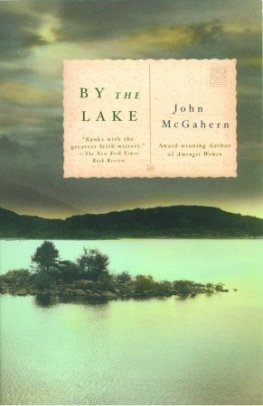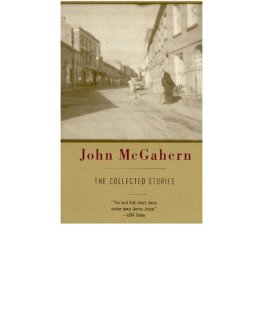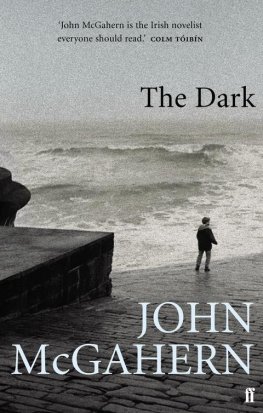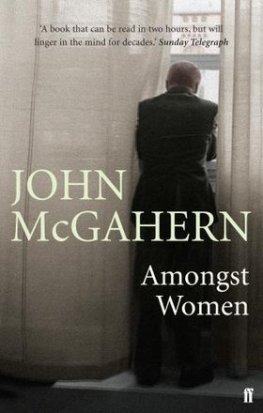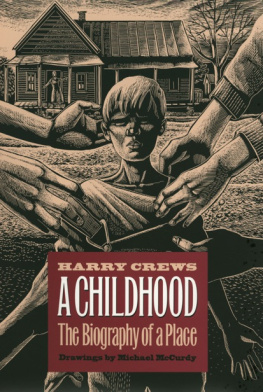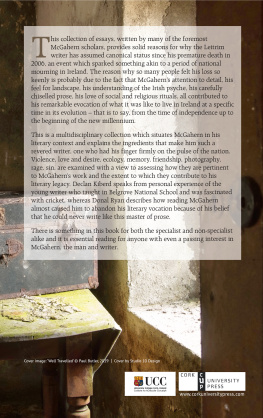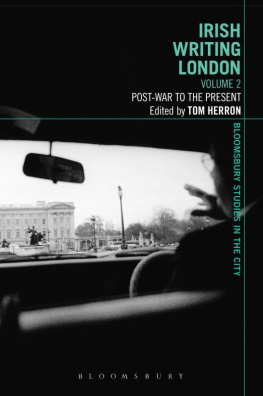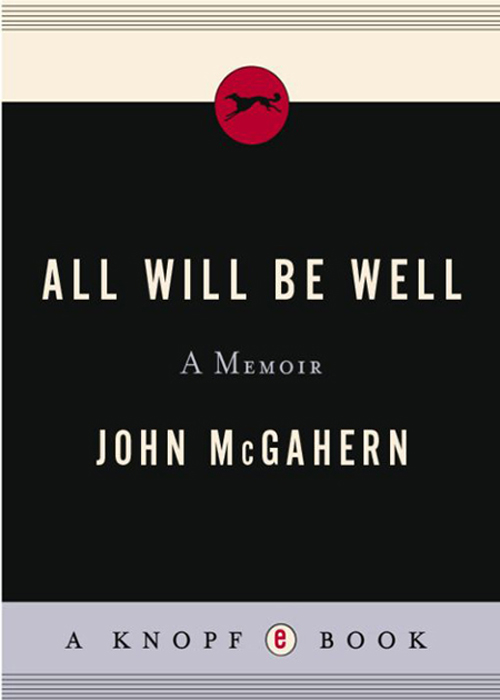
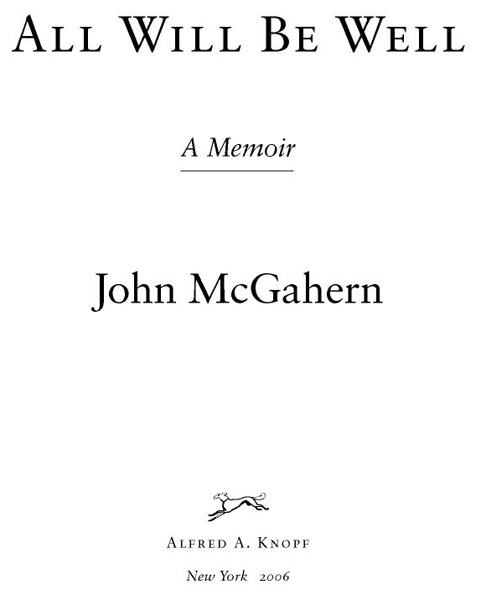
Table of Contents
I want to thank my editors, Sonny Mehta for his support over many years, and Neil Belton for his painstaking reading of the manuscript. Ian Jack first read the manuscript in a very rough draft, and his suggestions were invaluable.
I want especially to thank my sisters, Rosaleen, Margaret, Monica, Dympna, for their careful readings, corrections, their help with letters, and for bringing back into the light two important scenes that had slipped my memory.
I owe Madeline McGahern debts of advice and help stretching back over many books.
THE SOIL IN LEITRIM IS POOR, in places no more than an inch deep. Underneath is daub, a blue-grey modelling clay, or channel, a compacted gravel. Neither can absorb the heavy rainfall. Rich crops of rushes and wiry grasses keep the thin clay from being washed away.
The fields between the lakes are small, separated by thick hedges of whitethorn, ash, blackthorn, alder, sally, rowan, wild cherry, green oak, sycamore, and the lanes that link them under the Iron Mountains are narrow, often with high banks. The hedges are the glory of these small fields, especially when the hawthorn foams into streams of blossom each May and June. The sally is the first tree to green and the first to wither, and the rowan berries are an astonishing orange in the light from the lakes every September. These hedges are full of mice and insects and small birds, and sparrowhawks can be seen hunting all through the day. In their branches the wild woodbine and dog rose give off a deep fragrance in summer evenings, and on their banks grow the foxglove, the wild strawberry, primrose and fern and vetch among the crawling briars. The beaten pass the otter takes between the lakes can be traced along these banks and hedges, and in quiet places on the edge of the lakes are the little lawns speckled with fish bones and blue crayfish shells where the otter feeds and trains her young. Here and there surprising islands of rich green limestone are to be found. Among the rushes and wiry grasses also grow the wild orchid and the windflower. The very poorness of the soil saved these fields when old hedges and great trees were being levelled throughout Europe for factory farming, and, amazingly, amid unrelenting change, these fields have hardly changed at all since I ran and played and worked in them as a boy.
A maze of lanes link the houses that are scattered sparsely about these fields, and the lanes wander into one another like streams until they reach some main road. These narrow lanes are still in use. In places, the hedges that grow on the high banks along the lanes are so wild that the trees join and tangle above them to form a roof, and in the full leaf of summer it is like walking through a green tunnel pierced by vivid pinpoints of light.
I came back to live among these lanes thirty years ago. My wife and I were beginning our life together, and we thought we could make a bare living on these small fields and I would write. It was a time when we could have settled almost anywhere, and if she had not liked the place and the people we would have moved elsewhere. I, too, liked the place, but I was from these fields and my preference was less important.
A different view of these lanes and fields is stated by my father: My eldest son has bought a snipe run in behind the Ivy Leaf Ballroom, he wrote. In some ways, his description is accurate. The farm is small, a low hill between two lakes, and the soil is poor. My father would have seen it as a step down from the world of civil servants, teachers, doctors, nurses, policemen, tillage inspectors to which he belonged. Also, it was too close to where my mothers relatives lived and where I had grown up with my mother. The very name of the Ivy Leaf Ballroom would have earned his disapproval.
A local man, Patsy Conboy, built it with money he made in America. He first called it Fenaghvilleit was the forerunner of the Cloudlands and the Roselandsand later it became, more appropriately, the Ivy Leaf. All through the 1950s and into the 1960s he hired famous dance bands. In spite of being denounced from several pulpits, the ballroom prospered and Patsy Conboy became a local hero, dispensing much employment. People came by bus, by lorry, hackney car, horse trap, on bicycle and on foot to dance the night away. Couples met amid the spangled lights on the dusty dance floor and invited one another out to view the moon and take the beneficial air: There wasnt a haycock safe for a mile around in the month of July. All the money Patsy Conboy made on the dancehall was lost in two less rooted ventures: a motorcycle track that turned into a quagmire as soon as it was used and an outdoor, unheated swimming pool amid the hundreds of small lakes and the uncertain weather. They were not rooted in the permanent need that made the ballroom such a success.
Patsy was more than able to hold his ground against the pulpits. When he was losing money digging the unheated swimming pool out of daub and channel, men turned up for work with letters from their priests stating that they had large families to support and should be employed. Patsy was unmoved: My advice to you, Buster, is to dump the priest and put a cap on that oil well of yours. They have been capping such oil wells for years in America. Families are smaller and everybody is better off.
He was living close by when we bought the snipe run. The Ivy Leaf was then a ruin, its curved iron roof rusted, its walls unpainted, and Patsy had gone blind. Nothing about Patsy or his ballroom or the snipe zigzagging above the rushes would have commended themselves to my father. We settled there and were happy. My relationship with these lanes and fields extended back to the very beginning of my life.
When I was three years old I used to walk a lane like these lanes to Lisacarn School with my mother. We lived with her and our grandmother, our fathers mother, in a small bungalow a mile outside the town of Ballinamore. Our father lived in the barracks twenty miles away in Cootehall, where he was sergeant. We spent the long school holidays with him in the barracks, and he came and went to the bungalow in his blue Baby Ford on annual holidays and the two days he had off in every month. Behind the bungalow was a steep rushy hill, and beside it a blacksmiths forge. The bungalow which we rented must have been built for the blacksmith and was a little way up from the main road that ran to Swanlinbar and Enniskillen and the North. The short pass from the road was covered with clinkers from the forge. They crunched like grated teeth beneath the traffic of hoofs and wheels that came and went throughout the day. Hidden in trees and bushes on the other side of the main road was the lane that led to Lisacarn where my mother taught with Master Foran. Lisacarn had only a single room and the teachers faced one another when they taught their classes, the long benches arranged so that their pupils sat back to back, a clear space between the two sets of benches on the boarded floor. On the windowsill glowed the blue Mercator globe, and wild flowers were scattered in jamjars on the sills and all about the room. Unusual for the time, Master Foran, whose wife was also a teacher, owned a car, a big Model-T Ford, and in wet weather my mother and I waited under trees on the corner of the lane to be carried to the school. In good weather we always walked. There was a drinking pool for horses along the way, gates to houses, and the banks were covered with all kinds of wild flowers and vetches and wild strawberries. My mother named these flowers for me as we walked, and sometimes we stopped and picked them for the jamjars. I must have been extraordinarily happy walking that lane to school. There are many such lanes all around where I live, and in certain rare moments over the years while walking in these lanes I have come into an extraordinary sense of security, a deep peace, in which I feel that I can live forever. I suspect it is no more than the actual lane and the lost lane becoming one for a moment in an intensity of feeling, but without the usual attendants of pain and loss. These moments disappear as suddenly and as inexplicably as they come, and long before they can be recognized and placed.
Next page



